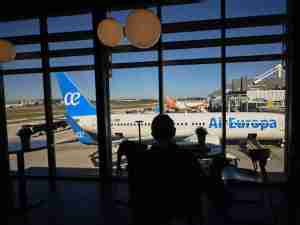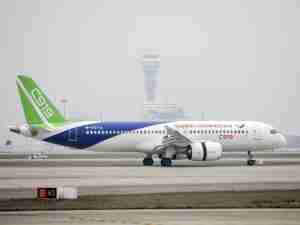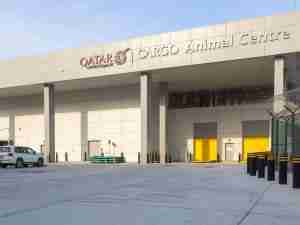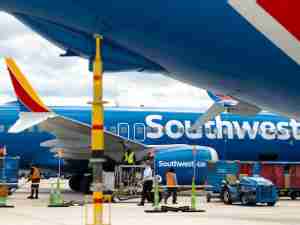Hong Kong’s new leader John Lee suspended a system that banned airlines from flying routes if they carried passengers infected with Covid, raising hopes he’ll ease onerous travel curbs that have damaged the city’s status as a financial hub.
Starting Thursday, the so-called circuit breaker mechanism will end until further notice, the government said in a statement. The city will pivot to a stronger testing regimen, which it says is more effective at catching imported cases than flight bans.
Cathay Pacific Airways Ltd. surged as much as 6% on the news in Thursday afternoon trading before paring gains. Shares are up about 34% this year, the best performing major airline stock in the world.
Lee’s first substantial policy shift since being sworn in as chief executive on July 1 suggests he’ll continue to slowly move toward opening Hong Kong to international travel, even as he’s careful to appear in lockstep with President Xi Jinping’s strict zero-tolerance virus policy. His statement referenced Xi’s call in March to “achieve maximum effect in prevention and control with minimum cost,” showing how the former police officer plans to navigate a tricky balancing act.
Regina Ip, convener of the government’s advisory Executive Council, hailed the move as “great news” on Twitter, saying there was “more relaxation to come,” without elaborating.
The circuit breaker system suspended flights landing with either five passengers or 5% of arrivals testing positive with Covid, whichever was greater. The bans had been slashed from two weeks to five days, but were one of the city’s most criticized curbs causing about 100 flight suspensions this year. They sparked chaos for travelers who have to book quarantine hotel rooms and tests to enter the city.
Hong Kong will now require arrivals to take an additional PCR test on the third day, when they are quarantined in designated quarantine hotels. Including the pre-departure test, travelers will need to take six PCR tests across 14 days.
The seven-day hotel quarantine requirement remains, though anticipation is growing that the length of confinement may also be trimmed. Bloomberg News reported the government is considering cutting the time inbound travelers must stay isolated in hotel rooms to five days, followed by two days at home.
While the change is a step in the right direction, the next focus should be to shorten quarantine or allow some period of home isolation, said Jin Dong-yan, a virologist at the University of Hong Kong.
“Hong Kong can’t be like China because we are the gateway to the outside world. If we are closed, our economy and everything will be different,” he said.
Security-minded Lee has inherited the problem that plagued former Chief Executive Carrie Lam’s final years in office: how to satisfy the city’s business community’s desire to open international borders with Beijing’s demand to limit virus cases in line with its strict Covid Zero policy—a key requirement to resume quarantine-free travel with the mainland.
Lee has said his administration was working with Chinese officials to introduce quarantine-free travel for people coming from Hong Kong to the mainland. Local media previously reported he was considering a closed-loop system to allow quarantine-free travel for business people.
“It is a very challenging and opposing position,” said Jin, referring to Lee’s goals of reopening to both mainland China and the rest of the world.











